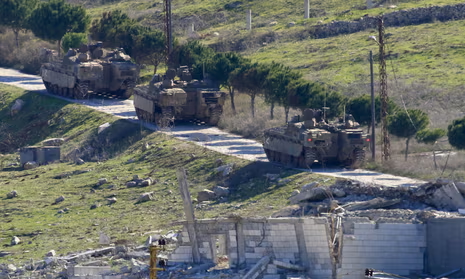The Lebanese army has accused Israel of stalling its withdrawal from southern Lebanon under the terms of a ceasefire agreement, one day before the deadline.
The truce, which began on November 27, stipulates a 60-day timeline for the Israeli military to retreat and for Lebanese forces, alongside UN peacekeepers, to take over the area.
The Lebanese military claims Israel has delayed its pullout in several areas, although it affirmed its readiness to deploy once Israel completes its withdrawal.
Israel, however, maintains that its continued presence is conditional on Lebanon fully enforcing the agreement, including the retreat of Hezbollah forces north of the Litani River and the dismantling of its military infrastructure.
Prime Minister Benjamin Netanyahu’s office confirmed that the withdrawal process would extend beyond the deadline in coordination with the United States.
The Lebanese army has cautioned civilians against returning to the border areas, citing the danger of mines and unexploded ordnance left by Israeli forces.
Reports from the Lebanese state news agency also indicate that displaced residents have received warnings allegedly from Israeli sources, advising them to stay away.

The fragile ceasefire followed two months of conflict between Israel and Hezbollah. Both sides have accused each other of violating the terms of the truce.
Hezbollah has warned that any breach of the agreement, including delays in withdrawal, would be considered a flagrant violation, potentially reigniting hostilities.
The UN peacekeeping mission in Lebanon (UNIFIL) reported multiple violations and discovered over 100 weapons caches allegedly linked to Hezbollah and other armed groups.
The truce came after a devastating escalation that included Israel’s intensified campaign against Hezbollah, culminating in the death of the group’s leader, Hassan Nasrallah, in a September airstrike on Beirut.
Despite international pressure, including calls from UN Secretary-General António Guterres for Israel to complete its withdrawal, the ceasefire remains precarious.


